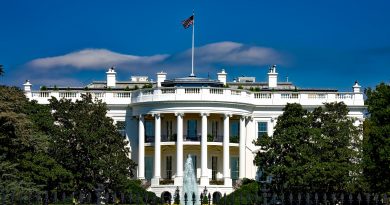Australia’s LGBT Community Finally Coming Out into the Spotlight
By Mariah McCloskey
Web Editor
Any Australian who is registered to vote has most likely gotten a letter asking them; “Should the law be changed to allow same-sex couples to marry?” Australia is finally following suit of many other countries and voting on the Same-Sex marriage rights.
This process, despite finally going into action September 12 of this year, has been in the works since 2015. Two attempts at passing legislation in 2016 and 2017 both failed after the oppositional Labor and Greens parties helped block it, calling for a simple parliamentary vote legalizing marriage equality instead. While the Australian government first proposed a national vote two years ago, Australia remaineds divided, while many other English-speaking nations passed law protecting these rights.
If the results show a majority yes vote, then the government would facilitate bringing a private member’s bill before parliament in the final sitting weeks of the year. This would allow parliament to change the Marriage Act and allow same-sex couples to marry, reports the Guardian.
Thousands of people marched from the state library through Melbourne’s streets as part of the Rainbow March for Equality on Sunday, October 1, reports the Guardian. Bill Shorten, Party leader of the Australian Labor Party, spoke at a marriage equality rally in Melbourne, urging supporters of the Yes Campaign to fight for just “one day more” longer than the No Campaign.
Almost every poll in the past decade has shown a majority of Australians support same-sex marriage. The Pew Research data published in 2013 reveals, that almost 80 percent of Australians are accepting of homosexuality in general, which is one of the highest numbers in the world. Australia’s homosexuality acceptance rate surpasses the U.S.’s homosexuality acceptance rate by almost 20 percent, and yet the U.S. legalized gay marriage in 2014.
Regardless of the overwhelming acceptance, there are still groups that are determined to uphold ‘traditional family values’.’ Australian Neo-Nazi group, Antipodean Resistance, emerged recently to launch a homophobic offensive with a poster campaign linking same-sex marriage to pedophilia, according to CNN.
The government pleaded for the debate to be civil and respectful, while the Senate, Australia’s upper chamber, has gone a step further. It passed special legislation that bans intimidation, threats, and vilification during the vote. The new law threatens a $12,600 ($10,000) fine for people who vilify, intimidate, or threaten harm “on the basis of sexual orientation, gender identity, intersex status or religion.”
The stigma and prejudice are compromising the mental health of LGBT Australians. According to the American Public Health Association, “policies that extend marriage to same-sex couples improve the health of lesbian, gay, and bisexual individuals.”. They found that the legalization of same-sex marriage could lower the rates of health care costs, due to the lowered rates of mental health issues in LGBTI people, suggesting the both health and economic benefits of pro-gay marriage policies.
Supporters of this legislation are rallying around the “Yes Campaign.”. The campaign’s executive director, Tiernan Brady, said the campaign is, “utterly committed to a solely positive campaign because we know we all have to share the same country the next day,” says the Guardian. .
David Meagher, Editor for The Australian, stated that, “For many LGBTI people this is nothing more than a national opinion poll on whether it’s OK to be gay.” He says that for many it is more than a yes or no question; it is all or nothing for both sides. “The idea this ought to be a “respectful debate” is frankly just magical thinking.”
The Australian LGBTI community has been fighting for the right to live their lives in the same manner as any other Australian. This kind of delay of human rights from a first world country is absurd in the 21st century.
Sixteen million Australians are eligible to participate in the vote. Many opinion polls are predicting a win for a “Yes” campaign, but unlike Australian elections, voting in the postal survey is not compulsory, so complacency and a low voter turn-out could be decisive factors, says BBC.
Regardless, the final votes are not cast until November 15, and no matter what happens, it will be cause for uproar in Australia.

